Introduction To The Commercial Dishwasher
Commercial dishwasher are vital in ensuring efficiency and hygiene in food service establishments. This guide provides detailed steps on choosing, installing, and maintaining a commercial dishwasher, ensuring you maximize its utility and lifespan.
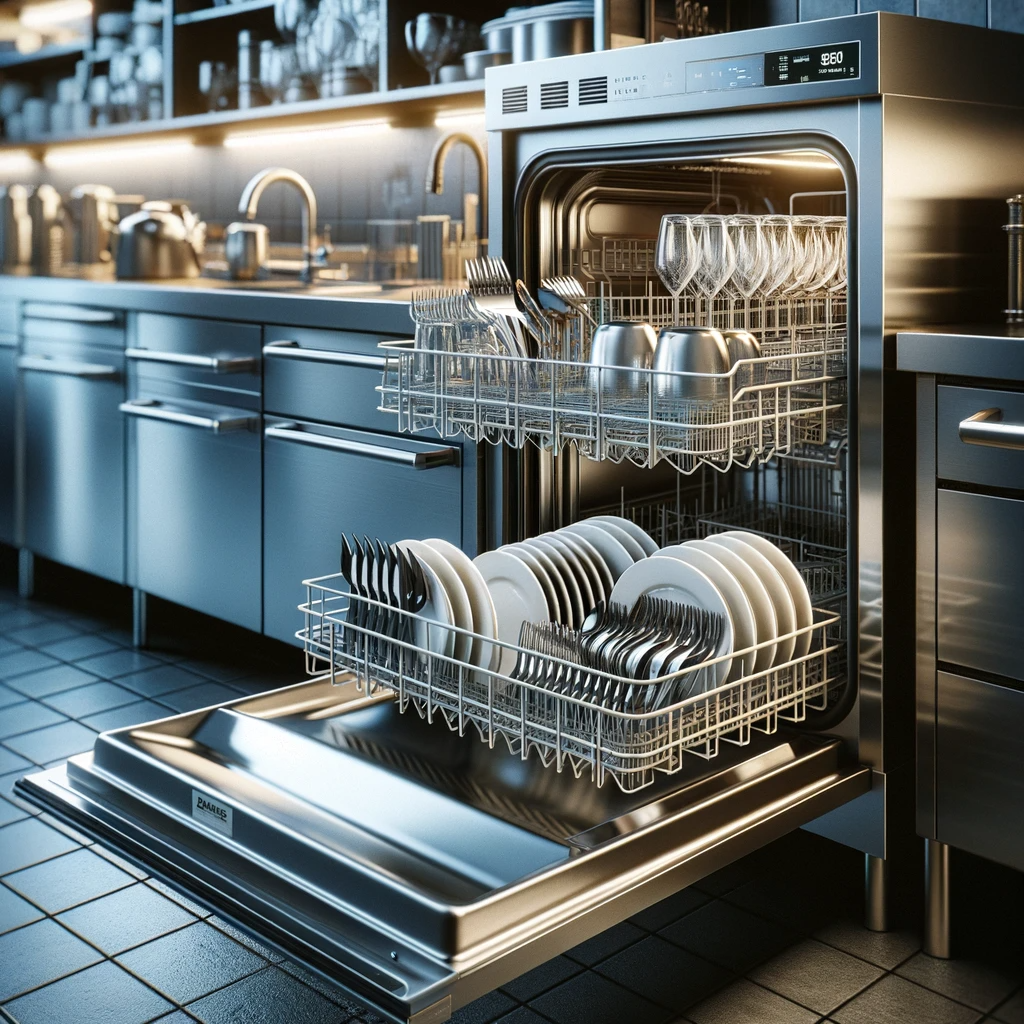
Step 1: Understand Your Needs
Before purchasing a commercial dishwasher, assess your specific needs:
- Volume of Dishes: Estimate the number of dishes your establishment needs to wash daily.
- Types of Dishes: Consider whether you’ll be washing mainly plates and glasses or also pots and pans.
- Available Space: Measure the space where the dishwasher will be installed.
- Water and Power Supply: Check the availability and capacity of water and power supply in your kitchen.
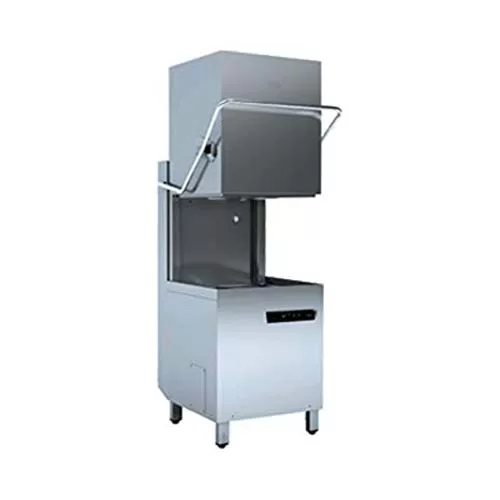
Step 2: Types of Commercial Dishwashers
There are several types of commercial dishwashers, each suitable for different needs:
-
Under Counter Dishwashers: Ideal for small establishments with limited space. They are similar to residential dishwashers but more powerful and faster.
-
Door Type Dishwashers: These are common in medium to large kitchens. They handle a higher volume of dishes and are more efficient.
-
Conveyor Dishwashers: Suitable for very high-volume operations, such as cafeterias or large restaurants. They can handle continuous loads and are highly efficient.
-
Flight Type Dishwashers: These are the largest and most powerful, used in institutional settings like hospitals or universities. They can handle thousands of dishes per hour.
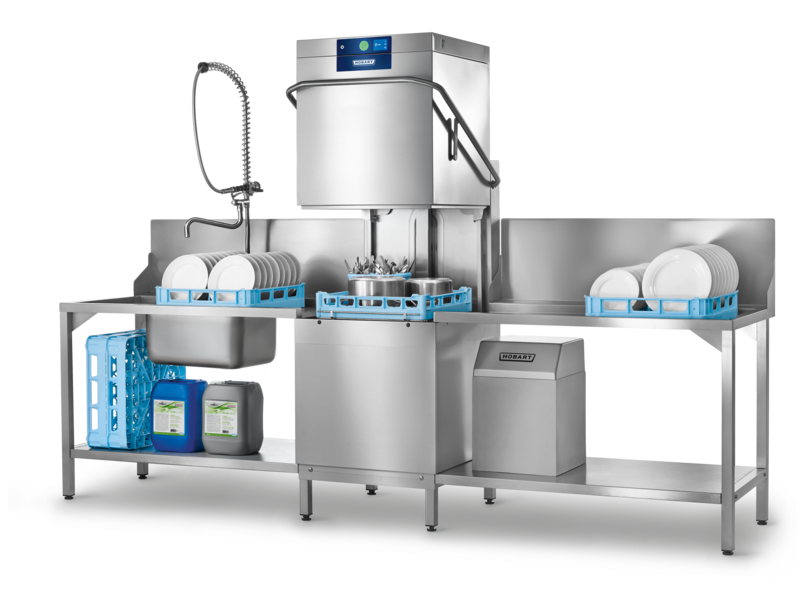
Step 3: Choosing the Right Dishwasher
Consider the following factors when selecting a dishwasher:
- Capacity: Match the dishwasher’s capacity with your estimated dishwashing needs.
- Cycle Time: Ensure the cycle time aligns with your operational requirements.
- Energy Efficiency: Look for energy-efficient models to save on operational costs.
- Water Consumption: Opt for models that use water efficiently to reduce utility bills.
- Ease of Use: Ensure the controls and operations are user-friendly.
- Maintenance: Check for features that facilitate easy cleaning and maintenance.
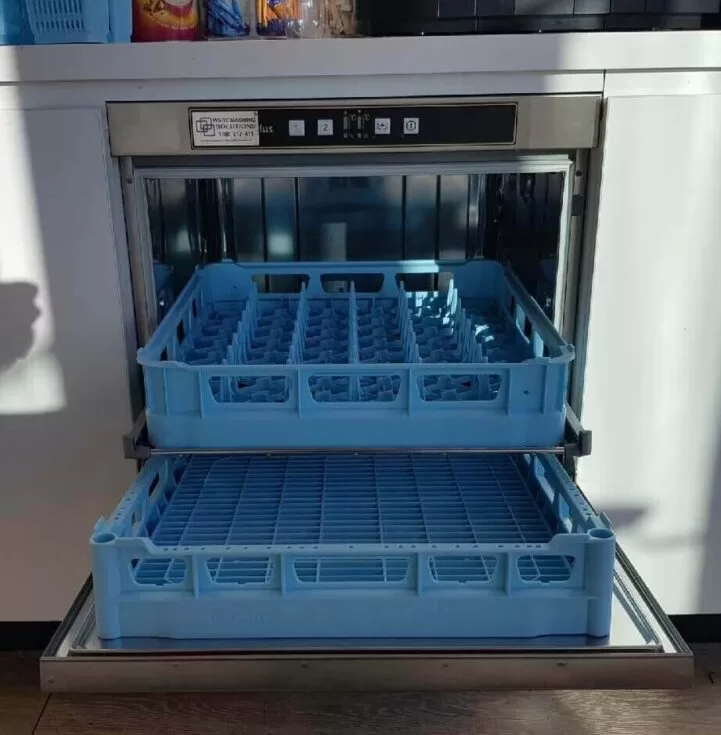
Step 5: Operating the Dishwasher
Follow these steps for efficient operation:
-
Pre-Rinse: Pre-rinse dishes to remove food particles. Some dishwashers have built-in pre-rinse functions.
-
Load Properly: Load the dishwasher according to the manufacturer’s instructions, ensuring items are correctly spaced to allow water to circulate.
-
Select the Correct Cycle: Choose the appropriate washing cycle based on the type and soil level of the dishes.
-
Use Appropriate Detergents: Use detergents and rinse aids recommended by the manufacturer to avoid damage and ensure optimal cleaning.
-
Regular Monitoring: Check the machine periodically during operation to ensure it’s running smoothly.
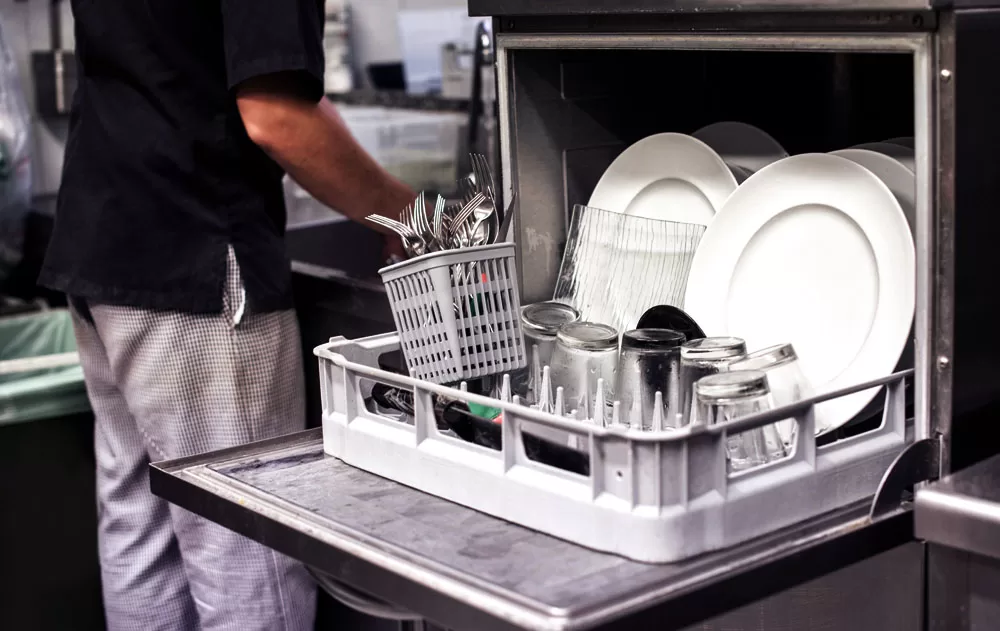
Step 6: Maintenance
Regular maintenance extends the lifespan of your dishwasher:
-
Daily Cleaning: Clean filters, wash arms, and nozzles daily to prevent clogs and ensure efficient operation.
-
Descale Regularly: Descale the dishwasher periodically to remove mineral buildup, especially in areas with hard water.
-
Check Seals and Gaskets: Inspect door seals and gaskets for wear and replace them if necessary to prevent leaks.
-
Professional Servicing: Schedule regular professional servicing to check for wear and tear and perform any necessary repairs.
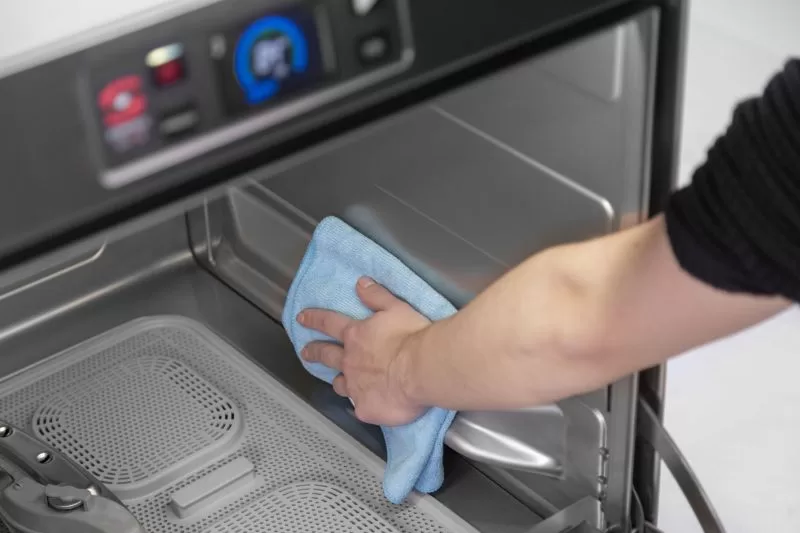
Step 7: Troubleshooting Common Issues
-
Dishes Not Clean: Check if the filters are clogged, ensure the spray arms are functioning, and verify that the detergent is correctly used.
-
Water Leaks: Inspect door seals and gaskets, and ensure the dishwasher is level.
-
Strange Noises: Look for foreign objects in the dishwasher, check the spray arms, and ensure they are not obstructed.
Conclusion
A commercial dishwasher is a significant investment for any food service establishment. By understanding your needs, choosing the right type of dishwasher, ensuring proper installation, and following best practices for operation and maintenance,
you can ensure efficient and reliable performance. Regular maintenance and troubleshooting will help extend the life of your dishwasher, providing long-term value for your business.
About Author nikita kapali
You May Also Like…
The Ultimate Guide to Hiring a Consultant Chef
Introduction Food trucks or mobile food trucks is an idea that has arrived. But, there is a issues with food safety in...
Food Safety Essentials: Addressing 5 Common Problems in Food Trucks
Introduction Food trucks or mobile food trucks is an idea that has arrived. But, there is a issues with food safety in...



